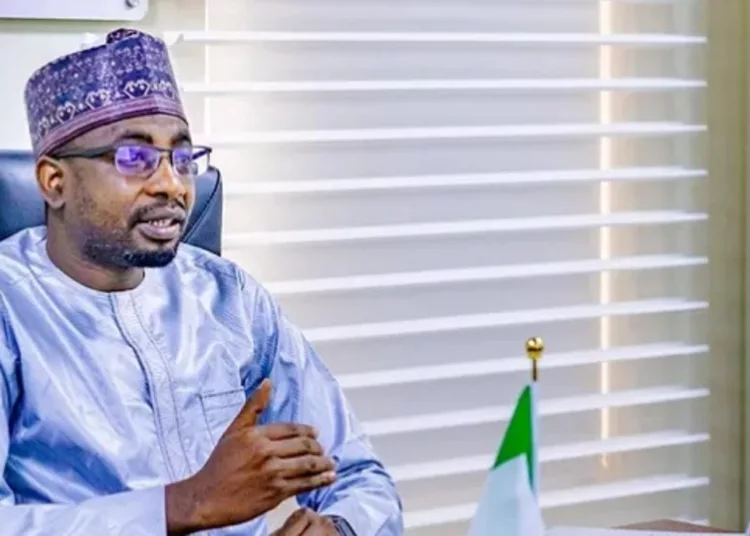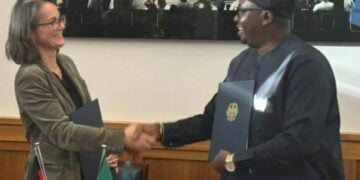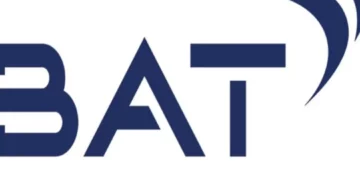The National Information Technology Development Agency (NITDA), in collaboration with the Digital Transformation Center (DTC) Nigeria and the implementing organisation Deutsche Gesellschaft für Internationale Zusammenarbeit (GIZ) has moved to boost Citizen Engagement through digital policy dialogue.
Indications to this development emerged during a two-day event titled “Digital Policy Dialogue: Cooperate. Innovate” aimed at engaging stakeholders on the Participatory Policy Implementation Framework (PPIF) to foster inclusivity between the government and citizens of Nigeria.
Speaking during the event, the Director General of NITDA, Kashifu Inuwa, noted that the framework focuses on involving citizens in policy development and implementation, thereby promoting ownership and accountability.
The DG said, “Today marks a remarkable milestone in our journey to reimagine the position of NITDA in the Nigerian tech ecosystem. Five years ago, NITDA faced a significant trust deficit with the tech community due to top-down policy impositions. To address this, NITDA shifted to a collaborative approach, emphasising co-design and co-creation.”
Inuwa expressed gratitude to GIZ for their support, which began with the Nigerian Startup Act created through a collaborative process. Following this success, GIZ and DTC assisted in developing the National Digital Literacy Framework (NDLF) through a similar participatory process. The initiative, according to him, has seen significant citizen engagement, with the creative sector recently volunteering to champion digital literacy in Nigeria.
He further said that, NITDA is collaborating with the National Youth Service Corps (NYSC) to train citizens across 774 local governments and the Ministry of Education to integrate digital skills into the national curriculum by next year, which is an effort towards achieving the Ministry of Communication, Innovation and Digital Economy’s long-term target of achieving 95 per cent digital literacy by 2030 and midterm target of 70 per cent by 2027.
Inuwa highlighted that the engagement aligns with NITDA’s Strategic Roadmap and Action Plan (SRAP 2.0) which has one of its eight pillars as “Strengthening Policy Implementation and Legal Framework.
“To ensure sustainability, GIZ and DTC are formalising a participatory policy implementation framework that can be adapted beyond the digital sector, benefiting areas such as education, agriculture, and healthcare,” he added.
He applauded all stakeholders for their past contributions and urged for continued collaboration to solidify the legal framework policy implementation in Nigeria.
The permanent secretary, Ministry of Communications, Innovations, and Digital Economy, Engineer Faruk Yusuf Yabo expanded on the expectations of the PPIF in his keynote address.
He said, “The proposed framework introduces several key initiatives: establishing multi-channel stakeholder engagement, promoting collaborative decision-making through digital platforms, ensuring transparency and accountability, investing in capacity building, and implementing robust monitoring and evaluation mechanisms.”
Furthermore, he stressed that the approach is designed to foster a participatory policy-making process and ensure that the benefits of technological advancements are equitably distributed.
He disclosed that the initiative is supported by partners including the European Union and the German government, which marks the beginning of a commitment to inclusivity and transparency in Nigeria’s digital policy development.
Earlier in his opening speech, the Coordinator, Sustainable Economic Development Cluster (SEDEC) GIZ, Nigeria Dr. Markus Wauschkuhn welcomed the participants to the public presentation of the draft Participatory Policy Implementation Framework (PPIF) for the ICT and digital economy sectors.
Wauschkuhn pointed out the vital contributions of NITDA, GIZ, and all stakeholders involved in creating the PPIF, noting the importance of a participatory policy-making process that includes diverse voices from individuals, communities, businesses, and institutions. He accentuated that the approach aims to ensure transparency, accountability, and trust in governance while addressing the rapid advancements in the digital age.
In her opening statement, Dr. Thwueba Dwani, Head of Digital Transformation Center (DTC) Nigeria, stated that involving stakeholders in policy implementation enhances sustainability and relevance, as evidenced by numerous studies. She introduced the Participatory Policy Implementation Framework (PPIF) as a crucial tool for Nigeria’s digital innovation ecosystem, developed through extensive stakeholder engagement and participatory formats.
Other agencies represented at the event were the National Council for Arts and Culture (NCAC), the Small and Medium Enterprises Development Agency of Nigeria (SMEDAN), the National Office for Technology Acquisition and Promotion (NOTAP), the Civil Society Organisation, the private sector, and other relevant stakeholders.





